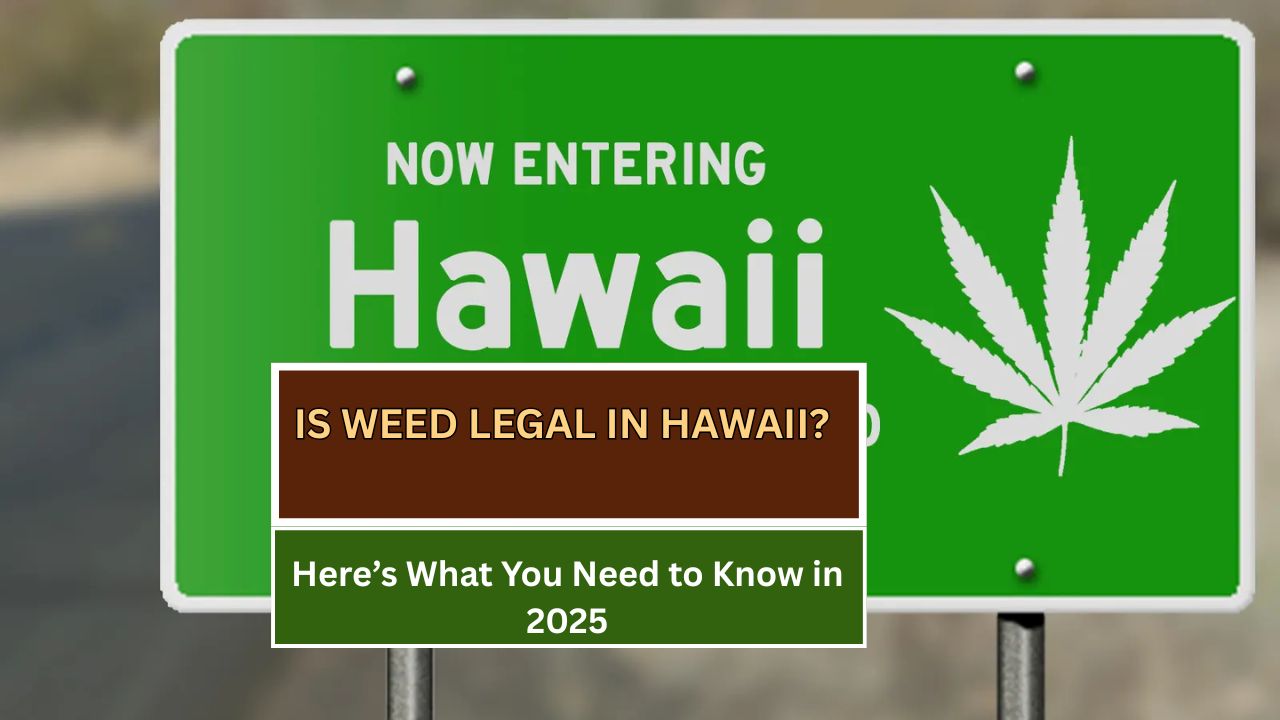As cannabis legalization sweeps across the United States, many are wondering whether the Aloha State has followed suit. As of 2025, Hawaii continues to maintain a cautious stance on recreational marijuana, despite broad public support and efforts in the state legislature.
While medical marijuana is legal, recreational cannabis remains prohibited. Here’s a breakdown of Hawaii’s cannabis laws and what the future may hold.
Recreational Cannabis Remains Illegal in Hawaii
Hawaii has not legalized recreational marijuana. Despite several legislative attempts, the state’s lawmakers have been unable to pass a bill that would allow adult-use cannabis.
In 2025, two significant bills—House Bill 1246 and Senate Bill 1613—were introduced with the goal of legalizing and regulating recreational marijuana for adults over 21. However, both bills failed to advance. HB 1246 stalled in the House, while SB 1613 did not make it past committee deliberations.
The failure of these bills underscores the complex political dynamics at play. Lawmakers have expressed concerns about regulation, youth exposure, impaired driving, and how legalization would intersect with federal law. As a result, Hawaii remains one of the few progressive states yet to adopt a recreational cannabis framework.
Medical Marijuana: Legal Since 2000
Hawaii was the first U.S. state to legalize medical cannabis via the legislature, passing its medical marijuana law in 2000. Today, qualified patients with a valid 329 Registration Card issued by the Hawaii Department of Health (DOH) can purchase cannabis from licensed dispensaries across the state.
Patients can use medical cannabis for conditions such as chronic pain, PTSD, cancer, and epilepsy, among others. In 2025, legislators proposed expanding access further, allowing physicians to recommend medical cannabis for any condition they believe could benefit from it. This would remove the limitations of a predefined qualifying condition list.
Decriminalization: Small Amounts Carry Civil Penalties
Although recreational cannabis is still illegal, Hawaii decriminalized the possession of small amounts in 2020. Under current law, possession of three grams or less of cannabis is classified as a civil violation, not a criminal offense.
Instead of jail time, violators face a $130 fine. This measure was intended to reduce the burden on law enforcement and the court system for minor, non-violent drug offenses. However, the low possession threshold (three grams) is one of the smallest among states with decriminalization laws.
Rise in Hemp-Derived THC Products and Legal Loopholes
In the absence of recreational legalization, some businesses in Hawaii have turned to selling hemp-derived THC products such as Delta-8 THC. These substances produce psychoactive effects similar to traditional cannabis but are derived from hemp, making them legally ambiguous under current federal and state laws.
These products are especially popular in tourist-heavy areas like Waikiki, where stores operate in a gray market. Health officials and lawmakers have raised concerns about unregulated sales and product safety. In response, a 2025 bill was introduced to ban synthetic cannabinoids and tighten restrictions on hemp-derived THC sales.
Outlook: Will Hawaii Legalize Recreational Cannabis Soon?
Despite setbacks, the movement to legalize recreational cannabis in Hawaii is far from over. Public support for legalization remains strong, and advocates continue to push for reform.
Governor Josh Green has expressed cautious support for legalization under a well-regulated framework. However, until lawmakers reach consensus on key issues—such as taxation, public health safeguards, and law enforcement protocols—recreational marijuana will remain out of reach.
For updates on future legislation, follow the Hawaii State Legislature and Marijuana Policy Project.
This article has been carefully fact-checked by our editorial team to ensure accuracy and eliminate any misleading information. We are committed to maintaining the highest standards of integrity in our content.

Outside of work, he enjoys playing chess, following cricket, and writing short stories. His commitment to integrity and in-depth analysis strengthens OTE News’ mission of providing trustworthy journalism.




